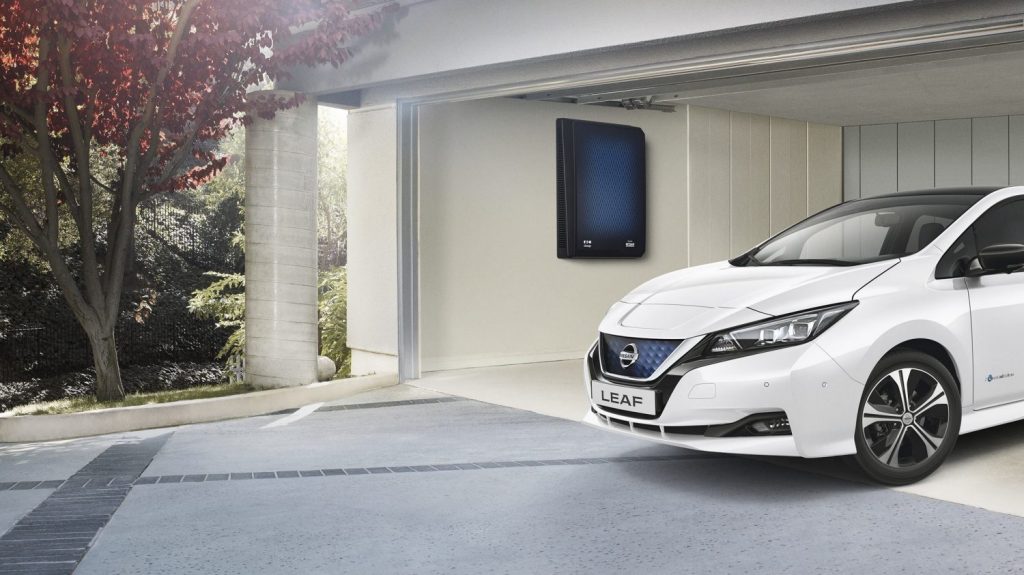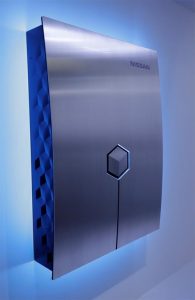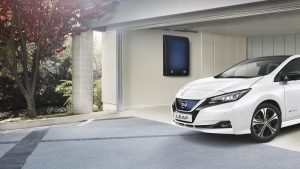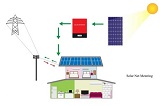While it might seem a bit unlikely right now, using batteries for home energy storage will likely become increasingly popular as battery prices plunge and the auto industry continues its progress toward green-friendly electric cars. Tesla has its Powerwall, Mercedes has announced plans to unveil a residential battery – and now, the latest player to enter the game is Nissan.
After making strides in the electric car market with its all-electric Leaf, the Japanese carmaker has partnered with power-management company Eaton in a collaborative effort to provide wall-mountable lithium-ion batteries to power homes.
Introducing the xStorage System
Nissan’s new home battery system, dubbed xStorage, will be in direct competition with Tesla’s Powerwall home energy storage system, which the company announced last year.
The difference with Nissan’s proposed solution is that it’s currently only available in the UK, where rain, fog and overcast skies are stereotypically common. Nissan claims its panels are designed to operate in bad weather, since they store power in recycled Leaf batteries.
With prices starting at €4,000 for 4.2 kWh hours of juice, the xStorage system won’t provide enough electricity to give a Leaf a full off-grid charge. However, the purpose of xStorage, as with competing home battery solutions, is to pull power from the grid when it’s cheaper, to cut down on utility costs.
Of course, the system requires professional installation, but once it’s hooked up, users should find it is fairly straightforward to avoid having to pay peak utility rates. The system even comes with a companion smartphone app that lets you toggle between grid power and battery power without having to flip a physical switch. The system is also quite nice-looking, so it won’t be a total eyesore like some appliances that have a strictly utilitarian design.
Saving Money in the Long Run
For UK residents who can afford the upfront cost, the xStorage system could be a great way to trim down utility bills. Nissan says its customers who opt to install the six-panel system can expect to shave as much as 66 percent off their electricity expenses.
Aside from granting UK consumers some level of independence from national electricity providers, Nissan is also offering customers a degree of flexibility – there’s a full package that integrates energy generation, management and storage, but buyers can opt to purchase the components individually, as well. Any way you look at it, the xStorage system seems like an attractive solution for those interested in reducing their carbon footprint and investing in renewable energy.
The recent slew of launches, announcements and unveilings shows the growing interest in the home battery market, but it remains to be seen whether a broad enough swath of consumers will come to view these devices as an expense that makes financial sense. So far, the battery packs companies have introduced have not been large enough to power a whole home through an extended power outage. In addition, though home battery systems like xStorage will eventually pay for themselves, the key word is eventually – it may take a few years for homeowners to recoup the cost. Still, increasing numbers of companies obviously believe there’s potential in exploring the home battery marketplace, and more products will only help develop new innovations and drive prices lower and lower.













